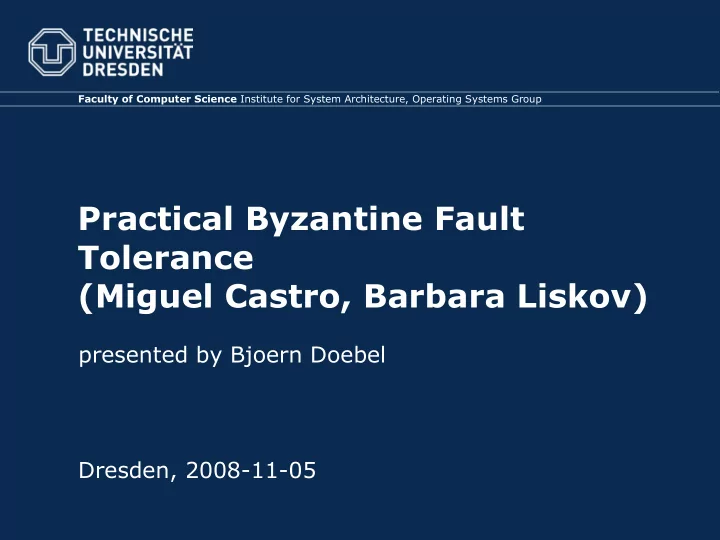

Faculty of Computer Science Institute for System Architecture, Operating Systems Group Practical Byzantine Fault Tolerance (Miguel Castro, Barbara Liskov) presented by Bjoern Doebel Dresden, 2008-11-05
Motivation • Byzantine Faults – Undetected failures – Solution: majority voting • n replicas, f faults tolerated -> n > 3f • State machines – Need total order of executed requests • Solutions typically synchronous – Slow
BFT Protocol
BFT Protocol
BFT Protocol
BFT Protocol
Protocol stages
Maintaining Service State • Periodic checkpoints of local service state using message log – Proof generation • multicast checkpoint msg to all peers – 2f+1 commit messages with same log • stable checkpoint • Can discard previous log entries
Views • Each replica maintains a view on who is the primary • Clients / replicas may detect faulty primary • Replicas initiate view change protocol – Don't accept requests anymore – Broadcast view change to next primary – Await replies (with timeout in case next one is faulty, too)
The “practical” part • Implemented Byzantine NFS daemon – “...does not implement view changes or retransmissions at present.” • Propose some protocol optimizations – Only send one result, rest of replicas only sends signature – Replicas reply tentatively to the client (and commit later) • Evaluate performance with Andrew benchmark – ~20% performance overhead
Musings • Did I understand the protocol? • Is it ok, to only measure normal-case performance? • Is this stuff relevant or only a scientific thing?
Musings...
Recommend
More recommend